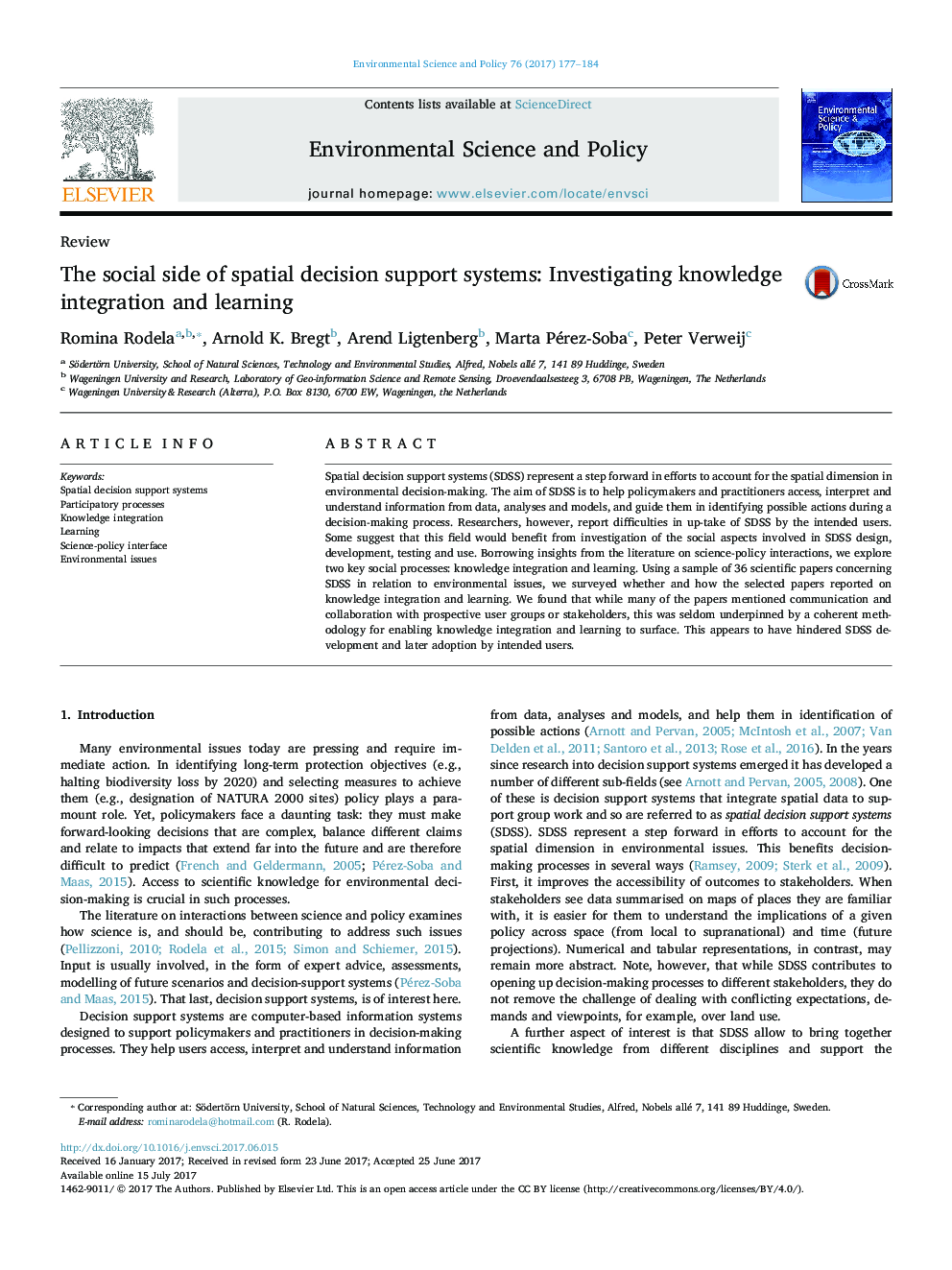| Article ID | Journal | Published Year | Pages | File Type |
|---|---|---|---|---|
| 5115727 | Environmental Science & Policy | 2017 | 8 Pages |
Abstract
Spatial decision support systems (SDSS) represent a step forward in efforts to account for the spatial dimension in environmental decision-making. The aim of SDSS is to help policymakers and practitioners access, interpret and understand information from data, analyses and models, and guide them in identifying possible actions during a decision-making process. Researchers, however, report difficulties in up-take of SDSS by the intended users. Some suggest that this field would benefit from investigation of the social aspects involved in SDSS design, development, testing and use. Borrowing insights from the literature on science-policy interactions, we explore two key social processes: knowledge integration and learning. Using a sample of 36 scientific papers concerning SDSS in relation to environmental issues, we surveyed whether and how the selected papers reported on knowledge integration and learning. We found that while many of the papers mentioned communication and collaboration with prospective user groups or stakeholders, this was seldom underpinned by a coherent methodology for enabling knowledge integration and learning to surface. This appears to have hindered SDSS development and later adoption by intended users.
Keywords
Related Topics
Physical Sciences and Engineering
Energy
Renewable Energy, Sustainability and the Environment
Authors
Romina Rodela, Arnold K. Bregt, Arend Ligtenberg, Marta Pérez-Soba, Peter Verweij,
